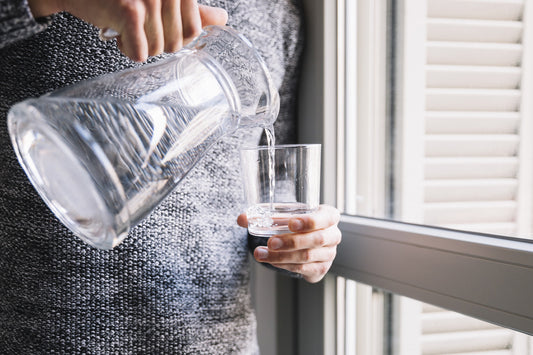Hard water stains on glass surfaces are a common household issue, often leaving homeowners frustrated. But what if there was a simple, effective way to tackle this problem? This guide dives deep into understanding hard water stains and offers practical solutions to keep your glass surfaces pristine.
Introduction: The Challenge of Hard Water Stains
What are Hard Water Stains?
Hard water stains, often referred to as limescale or mineral deposits, are white, chalky spots that form on glass surfaces due to the evaporation of hard water. Hard water contains a high concentration of minerals like calcium and magnesium, which leave behind these stubborn marks. Over time, these spots can accumulate, making the glass look foggy and unclean.

Image by Freepik
Why Glass Surfaces are Vulnerable
Glass, being a smooth and transparent surface, easily showcases any imperfections, making hard water stains particularly noticeable and unsightly. Moreover, the porous nature of glass allows these minerals to embed themselves, making them harder to remove over time.
The Vinegar Solution: Nature's Best Cleaner
Why Vinegar Works
Vinegar, a natural acid, is a powerful cleaning agent that breaks down the mineral deposits found in hard water stains. Its acidic nature dissolves the calcium and magnesium, making it easier to wipe away. Additionally, vinegar is eco-friendly and safe for most surfaces, making it a preferred choice for many households.
Step-by-Step Application
Start by ensuring the glass surface is free from any other residues. Spraying the affected area with vinegar and allowing it to sit for a few minutes can work wonders. The longer the vinegar sits, the more effective it will be. After the vinegar has done its job, a simple scrub can remove the loosened deposits, leaving the glass spotless. For stubborn stains, a repeat application might be necessary.
The Magic of Steel Wool
Choosing the Right Grade
While steel wool might sound abrasive, choosing the finest grade ensures that the glass isn't scratched. The 4-0 grade is ideal for this purpose. It's essential to ensure the wool is clean and free from any debris that might scratch the glass.

Image by Racool_studio on Freepik
The Scrubbing Technique
Gently scrubbing the glass with steel wool can remove even the most stubborn hard water spots. The fine fibers of the wool effectively lift away the mineral deposits without causing any damage. It's essential to scrub in a circular motion and to rinse the glass thoroughly afterward to remove any steel fibers.
Maintaining the Shine with Water Repellents
Benefits of Using Water Repellents
Water repellents form a protective layer on the glass, causing water to bead up and slide off. This prevents new hard water stains from forming. It not only keeps the glass clean but also enhances visibility, especially in wet conditions.
Application Tips
For best results, clean the glass thoroughly before applying the water repellent. Spray one pane at a time and buff with a microfiber cloth. This ensures an even application and prevents the repellent from drying out prematurely. Reapplication every few weeks ensures continued protection.
Daily Maintenance and Care
The Importance of Squeegeeing
Using a squeegee post-shower can prevent water droplets from drying on the glass, reducing the chances of hard water stains forming. It's a simple habit that can make a significant difference in maintaining the clarity of your glass surfaces.
Periodic Deep Cleaning
While daily maintenance can keep the glass looking clean, periodic deep cleaning with vinegar ensures that any budding hard water stains are nipped in the bud. Depending on the hardness of your water, a monthly or quarterly deep clean might be necessary.

Image by Freepik
Conclusion: The Road to Crystal Clear Glass
With the right techniques and maintenance, achieving and maintaining pristine glass surfaces is a breeze. Say goodbye to pesky hard water stains and hello to crystal clear glass! With consistent care and the right tools, your glass surfaces can remain spotless for years to come.
FAQs
Can I use apple cider vinegar instead of white vinegar?
While white vinegar is preferred, apple cider vinegar can also be effective, though it might leave a slight color. It's always best to test a small area first.
How often should I use water repellent?
It's recommended to reapply every month for optimal results. However, if you notice water not beading up, it might be time for a reapplication.
Are there any alternatives to steel wool?
Yes, there are specialized scrubbing pads available that are designed for glass surfaces. These pads are non-abrasive and can be equally effective.
Can hard water stains cause permanent damage?
If left untreated for extended periods, hard water stains can etch into the glass, causing permanent marks. Regular cleaning can prevent this.
Is it safe to use vinegar on tinted glass?
It's always best to test a small inconspicuous area first, but generally, vinegar is safe for tinted glass. However, prolonged exposure should be avoided.
Featured Image by Freepik





